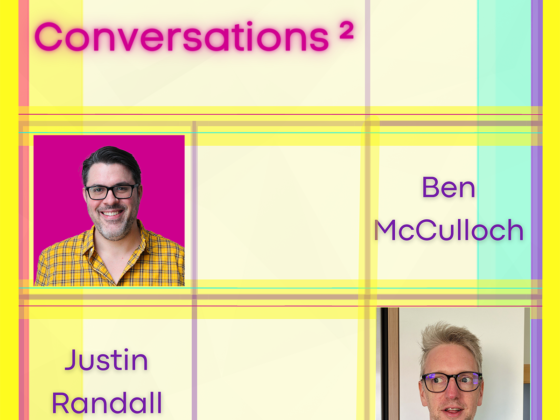Google is rolling out RCS messaging and partnered with BT to bring conversational messaging on Android to life. And it’s good!

Companies around the world are looking for conversation designers, a rare breed of people to help them advance communication between people and AI. That’s where we help!
Conversation Design Institute leads in training and certification for Conversation Designers, Conversational Copywriters, and AI Trainers. Our human-centric workflow has proven itself around the world. Our certificates ensure you create winning conversational experiences.
As advocates for the Conversation Design profession, we continue to work closely with tech partners, agencies and other key players in the industry. With this support, Conversation Design Institute is well on its way to becoming the number one platform in conversation design.
The future of voice commerce: RCS Messaging
What is RCS Messaging?
RCS stands for Rich Communication Service and is a telecommunications standard that is set to replace SMS messaging on Android.
It is now part of the GMSA 5G standards. As such, it’s widely supported by handset manufacturers and Carriers. This means that when you buy a new Android smartphone, it will come preinstalled with an RCS capable messaging app where the service is accessible from within the app.
Part of this standard includes RCS Business Messaging capabilities, known as RBM, which provides rich features for business messaging. Such features include support for rich media, carousels (which provide a great shop window type interface where a user can scroll through product images and the like), QR codes, in app payments, and many other features.
Being standards based, features can be easily utilised by developers to provide very rich, in-app experiences.
What can developers and brands do with RCS messaging?
Automated conversational AI, chatbots, can be developed & integrated into RCS messaging apps, which have the following features:
- Typing indicators & read receipts
- Group chat,
- High quality media transfer,
- Emoji, gif, sticker support,
This can also be complimented by passing a user to a live chat agent if and when appropriate.
Additionally, RBM offer two other beneficial aspects: Trusted Branding and Metrics;
- Trusted Branding; this is where a user will see a verified stamp as part of the message providing confidence that the message is from a genuine brand. The verification of the brand is currently provided either by Google, or in many cases the Carrier. For example, if you are a EE or BT subscribers, you will see that all RBM messages are verified by BT. This goes a huge way in promoting consumer confidence which is one of the downfalls with A2P SMS / business messages via SMS. How many times have you received a dubious looking SMS from a number which you don’t recognise with a link? SPAM and Phishing across SMS is a large challenge which RCS goes a huge way to remove.
- Metrics; this gives developers the ability to track how an RBM campaign is performing by offering read receipts and the like. This can be powerful, enabling developers to see how a campaign is performing and quickly make adjustments to improve user interaction & performance.
What are some example use cases for RCS messaging?
We are seeing a huge variety of RBM use cases across the globe, everything from car parking bots, to retail marketing and shopping agents. There are even a number of COVID-19 bots launched providing help and advise to keep people safe.
What results can you expect from an RCS messaging campaign?
Results have been very encouraging. Open rates in messaging, SMS, are generally high, 98% or higher. However one of the main metrics which developers look at is the Response or Click-through rate.
We see response rates which are as much as 200% greater than that of corresponding SMS campaigns.
Of course, the response rate are determined by the design of the agent or campaign, and, as already mentioned, one of the great things about RBM are the rich features available to developers to develop a really compelling & engaging experience.
How do payments in RCS messaging bots work?
We don’t as yet support payments in the Google Messages app, however there are multiple ways for developers to offer payments and we are already seeing a growing number of use cases which include payments capabilities. A great one which comes to mind is RBM campaign which enables users to make donations.
What are the challenges or RCS messaging adoption?
Adoption is an area which we have been laser focused on. The reality is that RCS is an upgrade to SMS, so users who have SMS will be able to use RCS for person-to-person and business messaging where they were previously using SMS.
The challenge has been the availability of RCS. This is now being resolved as carriers around the world are either providing RCS themselves or working with Google to offer RCS to Android users. By the end of the year [2020] RCS will be globally available to all Android users. If users don’t already have an RCS capable app on their smartphone, they can download the Messages app from Google from the Play Store.
What’s Google’s involvement with RCS messaging?
RCS will be globally available to all Android users by the end of the year. We have been very busy at Google over the past year or so building out a global RCS service which we call Guest Cloud.
Guest Cloud is rolling out to fill the gaps where a Carrier has not yet started offering RCS.
We started in the UK & France last summer and it was a great success. Following this success, we’ve continued to develop the service and we’re now nearing completion of our global rollout.
We’ve been working with many carriers and will continue to do so to offer Android users a safe, secure and interconnected RCS service which they can use to chat with friends & family and interact with brands and service providers which are important to them.
Our RBM platform is open for developers to access and start, if they haven’t already, developing RBM agents & campaigns.
In Mexico & Brazil, two of the countries leading the RCS & RBM charge, we are seeing significant growth in RCS & RBM. Over 30% of smartphone users are now provisioned for RCS and using it regularly.
On the RBM side, last month over 220 million RBM messages were sent.
Our Guests
About David Clark
David Clark is the Strategy Manager for Enterprise Messaging at BT. He is responsible for driving product and commercial innovation across business messaging on the EE network (owned by BT) to support the continued growth we are seeing today. He works both to develop the ecosystem across messaging platforms and partners as well as helping brands make sense of the growing number of channels available to engage with their customers.
David has been building new ventures throughout his career in the communications and IoT space. He started out in the Estonian Startup scene, working with businesses there including leading a sensor company to send texts to oil & gas workers whenever a leak was detected. Since then has gone on to lead innovation in both the public and private sector across healthcare, energy and telecoms. His expertise cover end to end product and business incubation with a key focus today on mobile messaging and conversational design
About Tim Atkinson
Tim Atkinson is a Business Development Manager for Communications Products and Services, EMEA at Google. His responsibilities include building & developing partnerships with mobile operators, helping operators to provide world class communications experiences for their subscribers. These include messaging, voice & video calling services.
Tim started his career in Telecoms, working for several years at Orange before moving to a Seattle based start-up as their Business Development lead in EMEA. Prior to joining Google in 2017, Tim was the Business Development Director in EMEA for Nuance Communications. His areas of expertise include telecoms services, speech technology, and mobile & web virtual assistants.
Links
RBM developer site: build RBM campaigns and agents
Register to the RBM developer event 4th November 2020
Businesses wanting to use RCS as part of a multichannel strategy can contact BT




